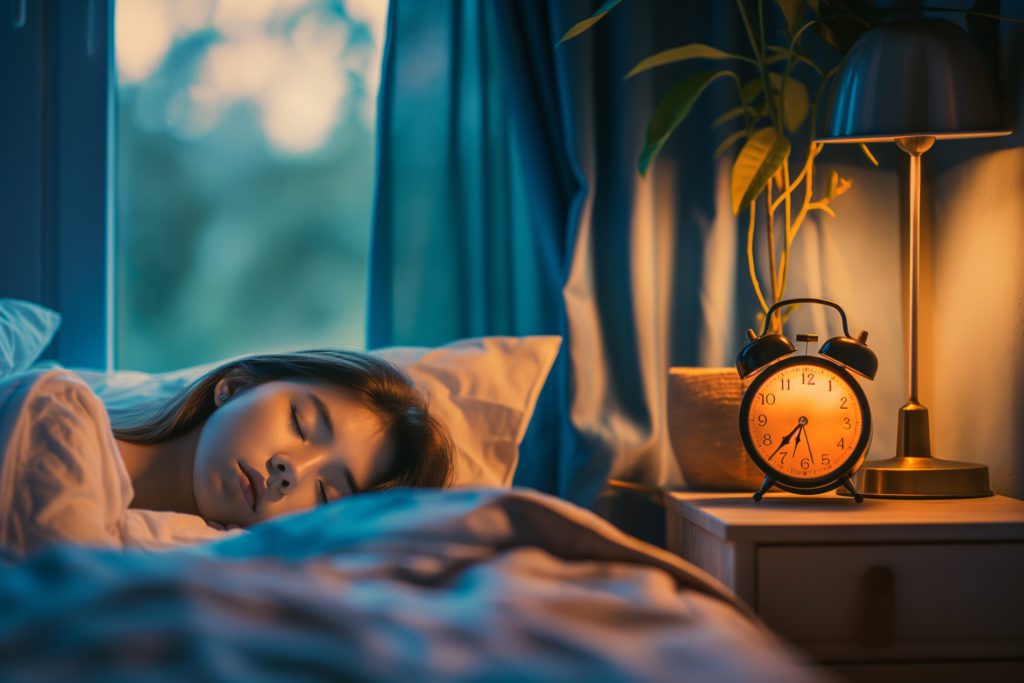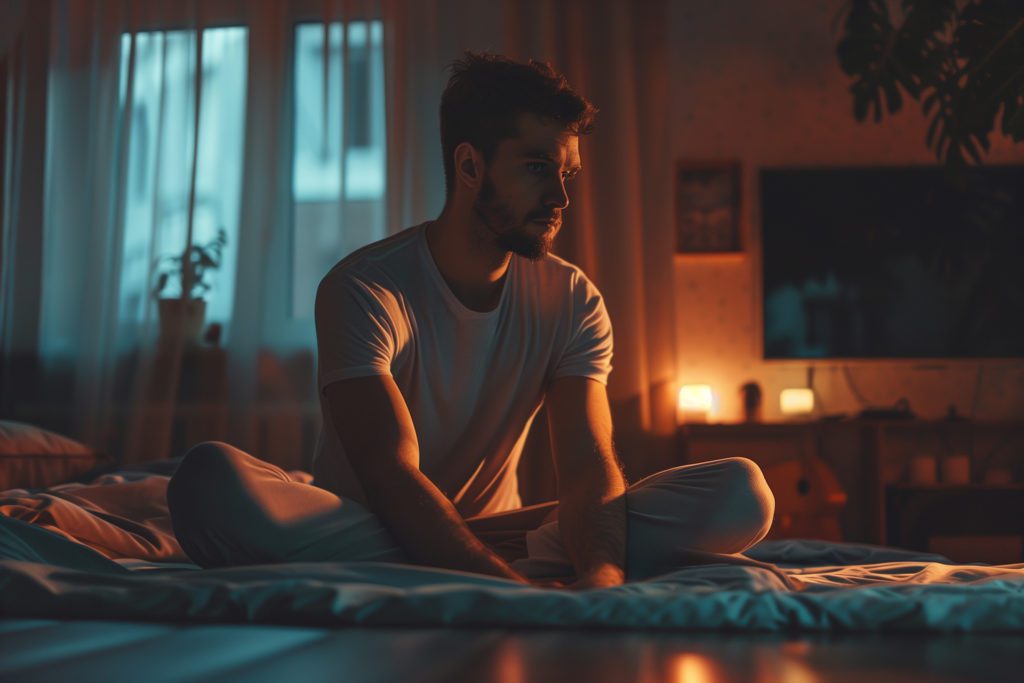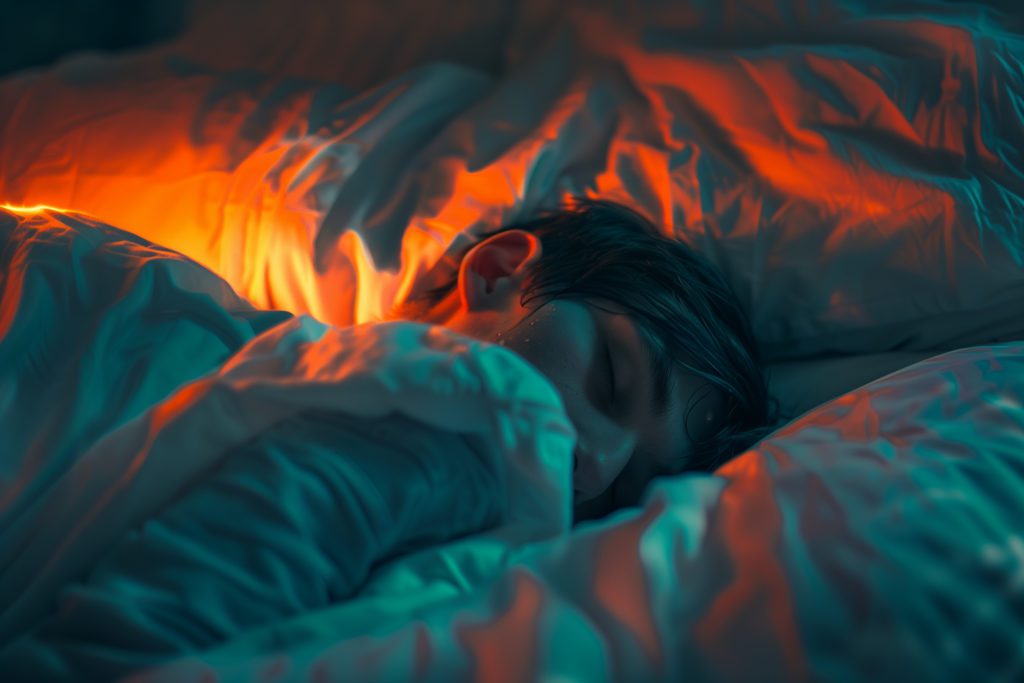
The Surprising Link Between Fasting and Sleep
Discover the surprising effects of fasting on sleep. Learn how intermittent fasting couldbe reshaping your sleep patterns and what you can do to find balance.

Intermittent fasting: friend or foe to good sleep?
So, you're on a health kick, embracing intermittent fasting like the wellness guru you aspire to be. But then, night falls, and instead of peaceful slumber, you're lying awake, feeling every hunger pang as a loud reminder of your daytime discipline.
It's a common scenario among those experimenting with fasting, sparking curiosity about the impact on sleep. And the next day? Instead of waking refreshed, you might find yourself grappling with fatigue, your body and mind caught in the crossfire between your diet and sleep cycles.
This blog aims to shed light on the complex relationship between fasting and sleep. With intermittent fasting's rise in popularity, it's time we looked into whether it's messing with our sleep cycles.
Fasting 101: A quick guide
Fasting is a practice with roots deep in history and culture, now gaining traction in modern life for its health benefits. The gist? It involves skipping meals for set periods—think intermittent fasting, where you alternate between eating and fasting windows. This approach is celebrated for potentially boosting metabolism and aiding weight loss.
But fasting isn't one-size-fits-all; people fast for various reasons, from religious rituals like during Ramadan to detoxing. The payoff? Beyond shedding pounds, it could revamp your metabolic health, sprinkle some benefits on heart health, and maybe even add years to your life.
The relationship between fasting and sleep
The relationship between fasting and sleep sparks quite the debate. As intermittent fasting becomes more mainstream, its impact on our shut-eye is scrutinized. This lifestyle tweak, while beneficial for health in several ways, also plays a role in how we sleep. It seems fasting could swing the pendulum both ways: for some, it's a ticket to better, more restful nights, but for others, it could mean a night of restless tossing and turning.
Moreover, fasting's impact on sleep is nuanced and varies from person to person. For some, it's a boon, leading to deeper, more restful sleep, possibly due to changes in diet and caloric intake influencing sleep quality. On the flip side, others might find themselves wide awake at odd hours, their sleep disturbed by hunger pangs or changes in their body's internal clock.
These different scenarios reflect the complex link between eating habits and sleep mechanisms, highlighting the need for a tailored approach to fasting that considers its potential effects on our nightly rest.
What happens when you sleep during fasting?
Now, a deeper look into what’s actually happening to the body during fasting. When you fast, your body enters a state of nutritional ketosis, where it starts burning fat for fuel, leading to changes in your metabolic processes that also affect your sleep. The decrease in blood sugar levels during fasting can increase the secretion of ghrelin, known as the "hunger hormone," which may influence your sleep patterns.
Additionally, fasting elevates levels of cortisol, potentially affecting sleep quality by keeping you more alert. Meanwhile, growth hormone levels rise during sleep, aiding in cell repair and muscle growth, a process that fasting can enhance due to the body's need to efficiently use energy reserves.
Fasting may also shift the timing of melatonin release, the hormone responsible for regulating your sleep-wake cycle, possibly altering when you feel ready to sleep. This complex hormonal interplay suggests that while fasting can improve sleep quality for some by promoting deeper sleep cycles and enhancing bodily repair, it might disrupt sleep for others due to increased alertness or hunger.
Understanding these physiological shifts can help tailor fasting practices to harmonize with your sleep needs, ensuring both your diet and rest support your overall health.
The pros and cons of fasting on your sleep
Thinking about fasting but wondering how it might mess with your slumber? While there's no one-size-fits-all answer, here are some commonly reported ups and downs to consider:
Pros
- Better sleep quality:
Some find that fasting leads to deeper, more restorative sleep. - Regulated sleep patterns:
Altered eating patterns might help in synchronizing your body's internal clock. - Increased growth hormone release:
This can boost tissue repair and muscle growth during sleep.
Cons
- Difficulty falling asleep:
Hunger pangs can make it tough to nod off. - Disrupted sleep cycles:
Fasting might lead to more awakenings or a lighter sleep stage. - Daytime drowsiness:
Changes in sleep patterns could lead to feeling more tired during the day.
Recognizing the impact of fasting on sleep requires a personalized approach, so paying attention to how your body responds will help you harness the benefits while minimizing any drawbacks. But while going with your gut is a good start, a sleep tracking app can deliver useful insights about how fasting may improve or disturb your sleep—without any guesswork.
Fasting-friendly sleep tips
Finessing your sleep while fasting can be simpler than you think. Here's the lowdown on making the night work in your favor:
- Make your last meal count
Your last meal should leave you satisfied, not stuffed or starved. Aim for a mix that keeps your blood sugar steady till morning. - Stay hydrated
Keep water close, especially if your fast ends close to bedtime. It quenches late-night thirst and keeps you from waking parched. - Keep the mind calm
A pre-bed routine that calms the mind and body can do wonders. Think light stretching or meditation, steering clear of screens and stress. - Create a blissful bedtime environment
Make your sleep space a haven. A little cool, a lot quiet, and utterly dark—set the scene for a serene night. - Careful with caffeine
Your last caffeine hit should be long before your fast starts. It's about keeping jitters at bay when you're trying to snooze.
Incorporating these tweaks can help you fast without tossing and turning. It’s about syncing your body’s needs with your sleep cycle for smoother nights.
Finding your balance between fasting and sleep
Exploring the relationship between fasting and sleep has shown us that this combo can have mixed effects on our slumber. Whether you're testing the waters with intermittent fasting or already in deep, it's important to keep an eye on how it's affecting your night-time rest. The takeaway? Listen to your body, adjust as needed, and don't let your quest for health disrupt those much-needed sleep cycles.
FAQ
Can fasting help with sleep disorders like sleep apnea?
Some studies suggest fasting, especially with weight loss, may reduce sleep apnea symptoms by decreasing inflammation and improving airway function. Fasting can also promote fat loss around the neck, reducing airway obstruction. However, more research is needed to confirm these effects.
Is fasting before bed better or worse for sleep quality?
Can fasting lead to insomnia?
Yes, especially at first, fasting may cause insomnia due to increased alertness, hunger pangs, and hormonal changes affecting sleep-wake cycles. Gradually adjusting to fasting, staying hydrated, and consuming nutrient-dense meals during eating windows can help reduce sleep disruptions
Can the type of fasting (intermittent vs. prolonged) impact sleep differently?
Yes, intermittent fasting is often easier on sleep, while prolonged fasting (over 24 hours) may increase wakefulness due to elevated cortisol and metabolic changes. Long fasts may also reduce REM sleep, so careful planning is needed to maintain good sleep quality.
Are there specific foods that help with sleep during fasting periods?
Yes, foods rich in magnesium (nuts, leafy greens), tryptophan (turkey, dairy), and complex carbs (oats, quinoa) support melatonin production and help prevent nighttime hunger. Eating these foods during eating windows can improve sleep and reduce fasting-related disruptions.
How long does it take for sleep patterns to adjust to fasting?
Sleep disruptions are common when starting a fasting routine, but most people adjust within a few days to a few weeks. The adaptation period depends on factors like meal timing, hydration, and overall sleep hygiene.

Written by
Georgia Austin
Professionally trained copywriter, editor, and content marketing strategist with over 7 years of experience—working with brands like Nike, Siemens, Toshiba, Tommy Hilfiger, Culture Trip, and Klook.
Download Pillow
Get help
Press & News
Legal
Connect
X (Twitter)
Company
Copyright © Neybox Digital Ltd.



